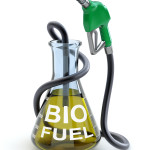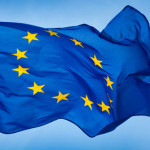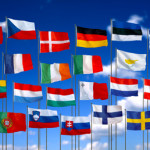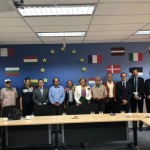RED 11 – A Test for EU to Support Free and Fair Trade
The EU Parliament and the Council, together with the EU Commission, is expected to decide soon on the future for palm oil biofuels in Europe should a compromise be reached at the Trilogue meetings taking place in Brussels to finalise the Renewable Energy Directive (RED) 11 Directive. It is expected that the final RED will be agreed upon by June 2018.
A Trilogue is a negotiation that takes place between the Council and the European Parliament, to agree to a compromise text for the final Directive.
An important issue that is of concern to the oil palm producers is whether palm oil biofuels will be banned by the EU from 2021. This means palm oil biofuels will not qualify for EU quotas, targets or subsidy. While the proposed ban for palm biofuels under the Directive would start in 2021, all other oilseeds will be allowed to be used until 2030, resulting in a clear case of discrimination and protectionism.
The 4th Trilogue negotiations took place on 31st May in Brussels. According to a report by Euractiv, the EU Commission declared it was not ready to consider the European Parliament’s (EP) request for a ban on palm oil used as transport fuel. The EP has made the ban on palm oil a key request in the renewable energy directive.
Early this year, the EP, in a plenary session vote on 17th January, voted to remove biodiesel made from palm oil from its list of biofuels that can count towards the EU’s renewables target from 2021.
Malaysia has showed its displeasure on the ban and has stated that if the ban is imposed, it will bring this up at the WTO.
Hanna Deringer and Hosuk Lee –Makiyama from ECIPE (European Centre for International Political Economy), in their paper titled Europe and South-East Asia: An Exercise in Diplomatic Patience, make a clear argument why environmental protection and trade rules are uneasy bedfellows, as a number of WTO disputes have struck down on discriminatory features in various environmental laws throughout its history.
They provides a number of examples that reveal the similarity between the proposed revisions under RED-II and WTO case law. For example, in the US—Shrimps/Turtles dispute, the US was found to be discriminating by imposing a different set of transition periods for certain developing countries, depriving them of non-discriminatory (‘most favoured nation’) rights.
The US Clean Air Act imposed a different set of rules on imported gasoline than it did for domestically equivalent products, failing to provide national treatment for imported ‘like’ products in respect of all laws, regulations and requirements.
A Panel also ruled in favour of the European Communities in its complaint against a US certification scheme on “dolphin-safe” tuna which automatically assumed that Dutch canned tuna was harmful by default, just because EU laws were different, and arguably laxer. The legal conclusion was that Dutch canned tuna could be of a higher environmental standard than the Dutch laws actually require.
According to Deringer and Makiyama, any advantage afforded to a WTO Member – such as contribution to renewable energy targets – must be afforded to any ‘like’ products from any other member.
The paper further states that under the guise of combating deforestation and defending the environment, Brussels would mainly defend European farmers against these imports, which would constitute a form of protectionism that could weaken the EU’s ASEAN (Indonesia and Malaysia in the lead) in the negotiations”.
On 16th January, more than a thousand Malaysian small farmers marched to the European Union’s Embassy in Kuala Lumpur, Malaysia. Those marchers represented 650,000 Malaysian small farmers whose lives and livelihoods are being threatened by the EU’s Directive as many farmers and their families rely on palm oil. In Malaysia, small farmers cultivate 39 per cent of the oil palm land in Malaysia. The palm biofuels ban will block them out of a major EU market.
Many have asked if the ban on palm oil is indeed about the environment or is it meant to deny developing country small farmers economic access to the developed EU market. After all, palm biofuels that are exported to the EU is certified under the German-based International Sustainability and Carbon Certification (ISCC) which is recognised by the EU Commission as one of Europe’s leading providers of sustainability systems.
The proposed ban for palm biofuels under the RED is a case of protectionism which will give advantage to other competing oilseeds
According to Ana Eiras, Former Senior Policy Analyst on International Economics at the Heritage Foundation, protectionist policies results in tens of millions of consumers, as well as small producers buying goods and services from the protected few, who bear the cost of such protection by paying higher prices for lower-quality products.
For the commodities sector to remain competitive and profitable, countries must remove protectionist policies and support free trade. After all, protectionist policies only benefit a few and erodes competition. Competition helps to improve the quality of products while keeping prices low. Producers will remain competitive and profitable while consumers will have excess to products at a lower price.
As negotiations on RED 11 continue, we wait to see if EU will support free and fair trade.
Belvinder Sron
Deputy CEO











Leave a Reply